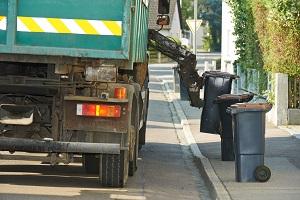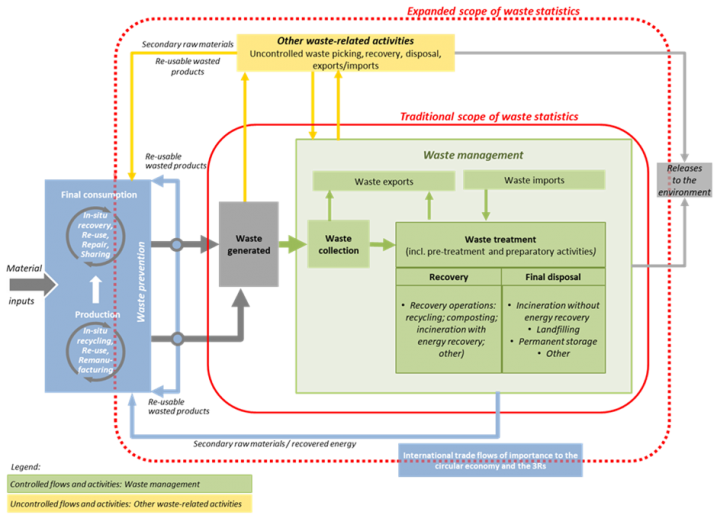
The Conference of European Statisticians Framework on Waste Statistics, published today by UNECE, provides a new perspective on defining and measuring the waste products of our economies.
Every household, enterprise and institution produces waste.
If not properly dealt with, this waste can pose a threat to human health and the environment. As we consume more and more, managing our waste through disposal or recycling becomes an ever more pressing issue. For example, if municipal waste collection is absent or underfunded, household garbage may simply be dumped in the street. On the other hand, when it’s properly managed, waste can represent an opportunity. Its management creates employment and secondary raw materials that can be used in production processes.
Official waste statistics have been produced in some countries for more than 40 years. Initially developed as a tool to monitor and manage threats to human health and the environment, they have typically focused on categories such as municipal and industrial waste and hazardous wastes.
More recently, however, information needs have shifted towards understanding and harnessing the economic value of waste, as countries seek to transition towards a circular economy in which the very meaning of the word ‘waste’ is being reconceptualized. Aiming at a world where natural resources are used sustainably, the distinction between ‘waste’ and ‘product’ is evolving.
These changes have created demand for information on waste types that have not traditionally been measured, such as electronic, food and textile wastes, as well as on types of wastes that are difficult to measure, including those processed by workers in the informal sector and those handled illegally.
There is also growing demand for figures to help us understand how recycling, repurposing and reprocessing fit into modern economic systems. And there is increasing need for information not only on waste volumes but their movement, trade and employment related to waste handling.
The new framework results from more than four years of work by a task force, led at different stages of its operation by experts from the Netherlands, the United Nations University, Bosnia and Herzegovina and Canada. Experts from Armenia, Azerbaijan, Germany, Israel, Kazakhstan, Mexico, Republic of Moldova, Russian Federation, as well as representatives of many international organizations, academic institutions and an NGO, brought a huge diversity of experience to build this new framework.
The key contribution of the work is a conceptual framework for waste statistics which, for the first time, expands the scope of waste statistics to include informal, uncontrolled and illegal waste-related activities. Crucially, it also situates the topic of waste statistics within a broader context of material flows, such as inputs from the environment to the economy and waste prevention activities.

One of the fundamental problems the work tried to address is the lack of clarity in terms and definitions. It might seem like certain everyday words such as ‘waste’, ‘material’, ‘discard’, ‘dispose’, ‘recycle’ and ‘collect’ are easy to understand. But in fact, conceptual and operational definitions of these key terms often differ between and even within countries as well as among international organizations, making it hard to compare or combine figures which actually relate to different things. The new framework examines the range of existing definitions used by different actors and proposes a set of definitions that can be used by all to promote common understanding.
The task force conducting the work identified a wide range of areas still in need of development. For example, there is as yet no globally-agreed classification of waste. A number of emerging needs for better statistics can be foreseen, such as on textile waste; electronic waste; food waste; end-of-life vehicles; infectious waste; demolition waste; etc. In the wider context of transitions to a circular economy, future work will need to explore these as well as questions on the economic value of waste and expenditures on waste management.
The framework, which has been endorsed by the Conference of European Statisticians, will serve as a crucial foundation for ongoing UNECE-led work on developing methods for measuring the circular economy. It is already being used to inform a Circular Economy Expert Group under the leadership of OECD.